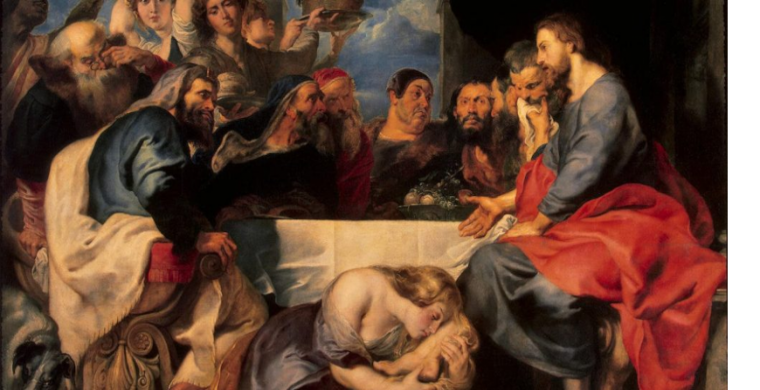THE DEBT WE OWE
By David G. Duggan ©
Special to Virtueonline
www.virtueonline.org
May 29, 2023
Short of taking out a mortgage to buy the house where I've lived for the last 34 years, I've never carried much debt. But like any self-employed person now pursuing an active retirement, I run into cash-flow issues from time-to-time. Not wanting to deplete the assets built up from a lifetime of deferred gratification, I'm reluctant to spend beyond my current income.
So, I've never really understood Jesus' parable of the two debtors. Told to his dinner host Simon the Pharisee after a "woman who had led a sinful life" had washed Jesus' feet with her tears, dried them with her hair, and then rubbed perfume into them (Luke 7:36-38), this parable is in some ways mirrored in Jesus' parables about other debtors. The parables of the talents (Matt. 25:14-30; Luke 19:11-27), the shrewd manager (Luke 16:1-9) and the ungrateful servant (Matt. 18:21-35) all deal with persons trying to avoid responsibility for what they owe.
"Who loved the moneylender more?" Jesus asked Simon, the one who owed 500 denarii, or the one who owed 50 (Luke 7: 40-42). Neither could repay the debt, so at best the question seems academic. At worst, to suggest that a moneylender could be loved given Exodus' strict prohibition against lending to the poor at interest (22:25), the question seems preposterous. Simon's answer is similarly conditional: "I suppose the one who had the bigger debt cancelled" (Luke 7:43). A gradation of love dependent on the amount of forgiveness seems anathematic to those who believe that Christ's love is freely offered to all who profess their faith in Him. Does the convicted murderer love Christ more than the cloistered monk?
Jesus contrasted the sinful woman with the pious Simon by saying that she had displayed her contrition and hence her desire for forgiveness (Luke 7:44-47), while Simon had simply offered Jesus a meal, and a forum for teaching a lesson. Simon had never asked for forgiveness; indeed his thoughts about the sinful woman were kept to himself (Luke 7:39).
Thanks to the generosity of someone I've never met, I've had a financial burden relieved that I never thought would happen. Do I love God more for this? Do I forgive others their debts owed to me? Can I afford not to?
David Duggan is a retired attorney living in Chicago. He is a frequent contributor to Virtueonline.














